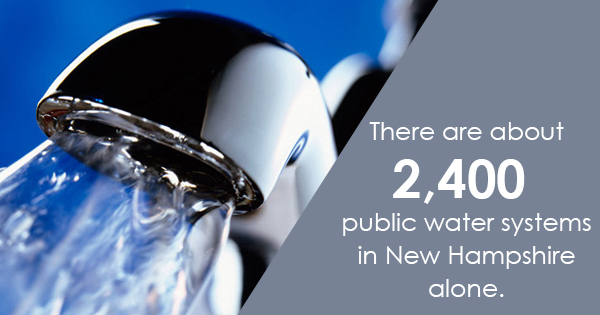
Picture this: You wake up in the morning, put your slippers on, and shuffle half-asleep out to the kitchen. “Coffee” is the only thought on your mind. You turn on the water to make a pot of that heavenly brew and… Ugh! What’s that smell?
If you have smelly well water, you may be wondering how to fix it. One of the most common nasty smells found in well water is a “rotten egg” smell. This water can not only smell bad, but it can discolor beverages and impact the taste of cooked food. Hydrogen sulfide (H2S) is usually the culprit for that awful smell. And in high concentrations, this gas can be toxic. It also can erode plumbing metals and other metal parts in appliances that use water.
So, where does H2S come from? When there is iron bacteria and sulfur bacteria present in groundwater, these bacteria can use iron and sulfur as an energy source to change sulfates into H2S gas. Sulfur can come from sources like decaying plants, rocks, or soil. In small amounts, these bacteria can cause smelly well water, as they thrive in environments like deep wells and iron plumbing systems. And with there being about 2,400 public water systems in New Hampshire alone, there’s a good chance that if one person is experiencing smelly well water, other people are too.
These bacteria can enter well water systems when maintenance is performed on piping or pumps. Additionally, it can enter when indoor plumbing maintenance is done, like when a new water heater is installed. But the main cause of bacteria is through directly through the surface water or shallow groundwater.
Other smells in well water systems may be related to other forms of bacteria within the water. But it’s important to note that once bacteria is established in a water supply, it can be difficult to get rid of — but not impossible. The primary source of protection is disinfecting plumbing systems after any maintenance is done. This can help prevent bacteria from forming or reduce it to tolerable levels.
After disinfecting the system, it’s always a good idea to have a water filtration system installed. If you don’t have one already, a water filtration system can help filter out not only hydrogen sulfide, but other harmful bacteria as well. Chlorination or an activated carbon filter are commonly used to treat well water and eliminate any odor-causing bacteria.
Along with having a filtration system, all well water residents should schedule annual water testing. Just because your water looks and smells clean, doesn’t mean it is clean. So to ensure your water is completely safe to drink and use, always have it tested by professionals.
Smelly well water can be more than an annoyance — it can be harmful to your health. So always make sure that your well water is properly tested and treated to keep you and your family safe and healthy.
